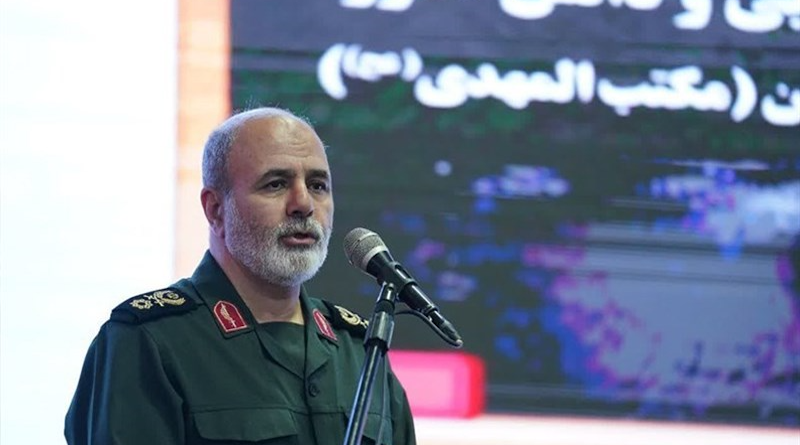Iran: New Face Of National Security – OpEd
After ten years, Secretary of Iran’s Supreme National Security Council (SNSC) Ali Shamkhani has been replaced with Ali Akbar Ahmadian, a veteran Islamic Revolution Guards Corps commander who is set to transform the security body.
Rumors surrounding Shamkhani’s departure first came to the surface in January this year, when one of his close associates was put to death over espionage for the MI6. Nevertheless, Shamkhani remained in his post and continued to make the headlines by orchestrating a thaw in Iran-Saudi relations. Over the course of his tenure as a top security official, Shamkhani coordinated a lot of national security decisions ranging from nuclear talks to internal developments.
He is now being replaced with a hard-nosed IRGC general whose career within the IRGC is distinguished by strategizing and strategic planning. Ali Akbar Ahmadian is a quiet, cagey and taciturn general whose actions speak louder than words.
A dentist-turned-general, Ahmadian served in various positions in the IRGC and rose through the ranks to become the mastermind of many IRGC initiatives and policies. His entire career in the IRGC is characterized by leadership and strategic planning. The heady days of his youth coincided with the outbreak of the Iran-Iraq war of the 1980s, which left a formative impact on his career as a navy admiral. During the war, he participated in many operations, including at sea. In some cases, he personally played a role in some maritime retaliatory operations, an experience that he would use to develop strategies for reciprocal operations in the IRGC Navy.
After the war, he was appointed as the deputy commander of the IRGC Navy. In this position, he theorized the maritime experience of the war in countering the aggressions of the US. In a sense, he is seen as the main architect of the IRGC Navy.
Also, he is one of the masterminds who developed the asymmetric warfare doctrine, which he put into practice when he later became the chief commander of the IRGC Navy.
In addition, Ahmadian reshuffled the IRGC during this later tenure as the chief of the force’s joint staff. In this position, he put the IRGC’s house in order administratively, something that earned him the approbation of Ayatollah Seyed Ali Khamenei, the Leader of the Islamic Revolution. Five years later, the entire IRGC entered a new administrative stage under the supervision of Ahmadian.
At the same time, Ahmadian was appointed as the commander of the IRGC’s Imam Hossein University, which played a great role in providing the force with the qualified cadets.
The new security chief has obtained a PhD degree in strategic management from the National Defense University. In September last year, Ayatollah Khamenei appointed him as a member of the Expediency Council.
Ahmadian is taking up the reins of Iran’s national security at a time when the country is navigating through sensitive issues at home and abroad. These issues range from Afghanistan, Azerbaijan, and Saudi Arabia to the now defunct 2015 Iran deal, which is formally called the Joint Comprehensive Plan of Action (JCPOA).
Shamkhani handled some of these issues. He played a key role in paving the way for Tehran and Riyadh to sign a Chinese-brokered deal in Beijing on March 10 this year. The deal restored the Iran-Saudi diplomatic relations after seven years.
Shamkhani has held the position since September 2013. Since then, he has been overseeing major cases ranging from the nuclear talks to regional negotiations with Iran’s Arab neighbors.
In his recent weeks at the SNSC, Shamkhani highlighted the shift in the world order from unipolar to multipolar.
“We are now at a critically historical juncture, and a change in the world order is accordingly of paramount importance. The new world order and mechanisms to approach it would prompt us to review our macro policies,” he underlined.
The comments were delivered by Shamkhani in Tehran at the “New World Order Geometry” conference’s closing ceremony, which was held earlier in May 2023.
He stated that the opportunities and challenges of the new world order rely on how nations behave and prepare for such changes.
Shamkhani also remarked that the new world order may either present big and bright chances or pose threats and dangers.
“We must prepare ourselves and increase our resilience for global transformations,” he noted.
Shamkhani also emphasized the need of preparing for the conditions brought about by the new world order and the changes that follow, adding that being prepared for such developments will allow one to make the most of the new world order.

